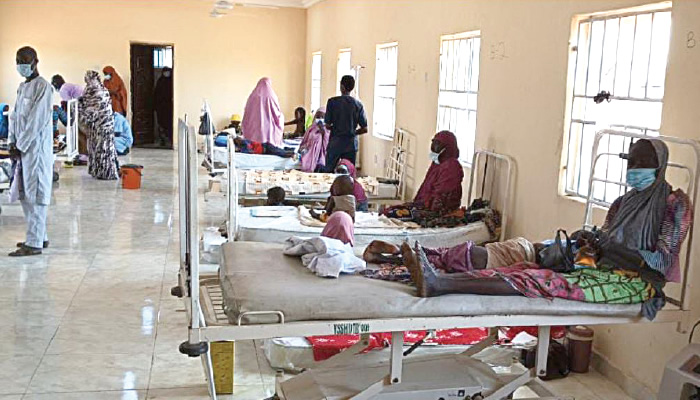
FROM just a few cases last year, Nigeria is now battling an outbreak of diphtheria, a highly contagious bacterial disease that has claimed many lives across several states. The recent update by the Kano State Government that 520 children have so far been killed by the disease in the state underscores the magnitude. The federal and state authorities need to do much more to stop its advance.
The Nigeria Centre for Disease Control had reported that by July 2023, 137 deaths and 1,534 confirmed cases had been reported across 11 states and rising.
However, subsequent reports from many states have indicated a steady rise in the number of cases and deaths. According to the World Health Organisation, between June 30 and August 31, 5,898 cases had been reported in 59 local government areas spanning 11 states.
Health experts are worried. The WHO described the rate of spread as “unusual” and called for better response. The US Centers for Disease Control has advised Americans visiting or planning to visit Nigeria to be wary, raising its alert tenor to Level 2 that urges travellers to “practise enhanced precautions.” Nigerian officials should be concerned.
Diphtheria is an infectious disease caused by the Corynebacterium diphtheriae bacterium, which produces a toxin that primarily affects the respiratory system and causes severe sickness. It is transmitted through respiratory droplets, largely impacting un-immunised or inadequately vaccinated individuals. Most vulnerable are children, and adults with weakened immune systems.
Upon infection, diphtheria targets the throat and nose, leading to a thick greyish membrane formation that can obstruct breathing and cause asphyxia. The toxin also damages vital organs, such as the heart and nerves. Without prompt medical intervention, victims can suffer from respiratory distress, heart failure, paralysis, and potentially, death.
By September 12, health agencies tallied a cumulative 8,353 cases since the first reported case in 2022. Sadly, of the confirmed cases, 73.5 per cent were children aged 1-14 years; more than half, 56.3 per cent, were females.
UNICEF said that by August, 27 states had been hit. Most affected are Kano, Yobe, Katsina, Lagos, the Federal Capital Territory, Sokoto, and Zamfara. Combined, these states account for 98 per cent of all the suspected diphtheria cases.
They need to take extraordinary measures to stop the scourge in their respective states and coordinate with federal and international response.
The Federal Ministry of Health and Social Welfare has assured Nigerians that it has been responding appropriately, primarily through the NCDC, and the National Primary Health Care Development Agency. It said reported cases had risen to 11,587 by last weekend, of which 7,202 were confirmed from 105 LGAs across 17 states and the FCT.
Kano accounted for the highest with 6,185, followed by Yobe, 640, Katsina, 213, and Borno, 95. Mohammed Pate, the Health and Social Welfare Minister, has set up an emergency task team to coordinate the national response, scale up vaccination as 80 per cent of confirmed cases were found to be unvaccinated, and ensure the collaboration of all stakeholders.
Immunisation should be stepped up, especially among children. Vaccines such as the DTP vaccine (combining diphtheria, tetanus, pertussis) that are said to be highly effective should be made readily available.
Responders should establish effective surveillance systems to track and respond promptly to outbreaks, ensuring early diagnosis, isolation, and comprehensive treatment for infected individuals.
Equipping hospitals and health centres with necessary resources, skilled medical professionals, and appropriate isolation and treatment facilities are also vital to combat the outbreak and minimise fatalities.
The various governments should allocate sufficient funds to healthcare, mass vaccination and public awareness programmes. Individuals, parents/guardians should actively participate by seeking vaccination, maintaining personal hygiene, and reporting suspected cases promptly to health authorities.
There should be a renewed urgency in combating the disease.





